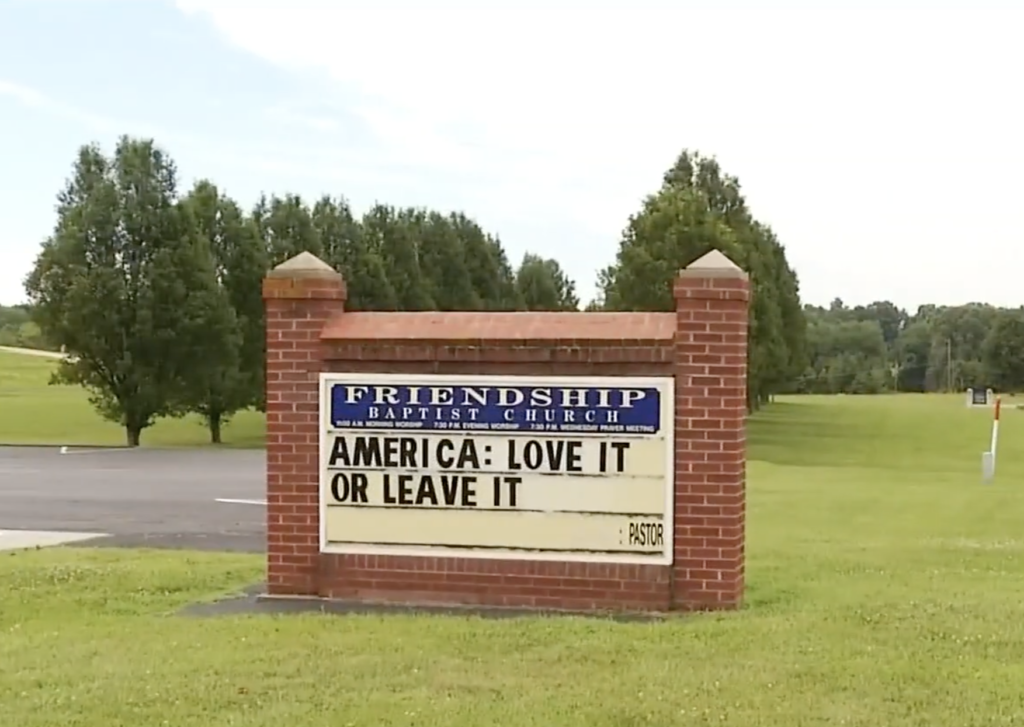A pastor from a small church in Appomattox, Virginia, faced a congregational protest over the weekend after he posted the phrase, “America: Love it or leave it,” on the church’s roadside sign.
E.W. Lucas, the 85-year-old pastor of Friendship Baptist Church, told WSET-TV that members of his church walked out of Sunday’s service in protest of his sign. The minister told WSLS-TV about 10 people remained in the building.
“I’ve tried to be honest,” he told WSET. “I’ve tried to do what’s right. But I believe in my country. I love my country. And I don’t mind standing up for the country.”
To WSLS, Lucas said: “It’s hard for me to understand how folks can turn on a pastor after all those years.” He also told the station he’s received death threats: “The church might be burned to the ground by someone. I don’t know who. And that the word also was out that I would lose my life, that they would kill me, too.”
The sign is actually a couple weeks old. Lucas, who founded Friendship Baptist in 1979, posted the message as a reaction to the “situation in Washington,” according to WSET. The pastor was presumably referring to the accusations of racism against President Donald Trump, who had just challenged a group of Democratic congresswomen who have criticized the U.S. to “go back” to the countries “from which they came.
Despite the backlash (he also has enjoyed some support), Lucas told WSLS he has no plans to leave the church. He said, “I’m staying until the Lord gets ready for me to leave.”
While Lucas’ intentions may have been benign — or even good — such language doesn’t belong on a church sign.
For better or worse, those old school roadside signs are, for many, the only window they get into a church, a congregation representing the Gospel, and limiting language sends the message the Christian message is equally as limiting.
As believers, we belong not the U.S. — or any other country on the globe — but to an eternal kingdom, one that exists outside space and time. We belong to the Kingdom of God, as members of the body of Christ.
In 2 Corinthians 5:20-21, the apostle Paul described those who are saved as “Christ’s ambassadors, as though God were making his appeal through us. We implore you on Christ’s behalf: Be reconciled to God. God made him who had no sin to be sin for us, so that in him we might become the righteousness of God.”
The horrible threats Lucas has allegedly received highlight just how divided our culture has become over the past decade. People should not fear for their lives when they share their opinions, but that’s sadly the reality in which we now live.
For the church, though, the best solution is to keep those opinions off roadside signs. Because we can’t allow unforced errors to misrepresent the Gospel.



